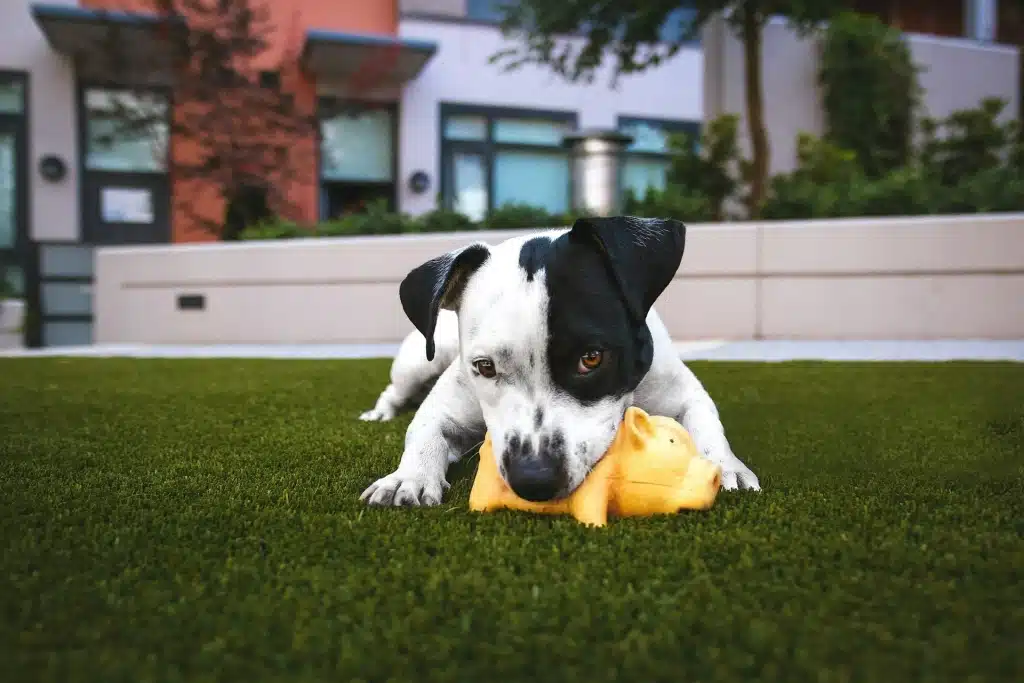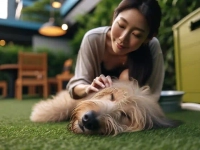In This Article...
THE OVERVIEW...
Is Doggy Daycare Right for Your Puppy?
Deciding whether to enrol your puppy in daycare is an important choice for pet owners. Doggy daycare offers a safe, stimulating environment for dogs to socialise, play, and stay active while you’re away. Here’s what you need to know about daycare, when puppies can start, and the benefits it provides.



What is Doggy Daycare?
Doggy daycare is a supervised space where dogs can enjoy play, enrichment activities, and interaction with other dogs. Trained staff ensure your puppy’s safety and engagement throughout there time with us. It’s an excellent way to keep your puppy active and help them develop essential social skills.
When Can Puppies Start at Kuri?
Puppies can usually start daycare at 16 weeks, provided they’re fully vaccinated. Early socialisation in a controlled environment helps puppies grow into confident, well-behaved dogs. If your puppy shows curiosity and enjoys playing with others, they’re likely ready for daycare.
What Social Skills do Puppies Need?
Every pup needs essential social skills to thrive. A quality day care service ensures your furry friend gets the right care and attention from experienced daycare staff during their dog’s first day.
With the right pet care services, your dog may develop friendships and learn important behaviours Important dog behaviours for socialisation include:
- Playfulness: Engaging with dogs and humans builds social skills and boundaries.
- Calmness: Staying calm in new or busy situations reduces anxiety.
- Body Language Awareness: Recognising stress or discomfort prevents conflicts.
- Greeting Etiquette: Polite greetings, like sitting or waiting, show good manners.
- Impulse Control: Waiting for treats or not jumping fosters self-control.
- Exposure: Experiencing different settings reduces fear and builds adaptability.
- Positive Reinforcement: Rewards encourage good social behaviours.
- Leash Manners: Walking calmly on a leash improves outings for all.
- Social Interaction: Meeting various people and animals builds confidence.
- Handling: Comfort with touch and grooming aids calmness in care settings.
By focusing on these behaviours, dog owners can help their pets develop the social skills necessary for a happy and well-adjusted life. Every dog will get the chance to interact with others, which is crucial for their development. As a pet parent, investing in dog daycare services is a smart choice for your dog’s well-being.

Why Choose Kuri Doggy Daycare?
Daycare offers several benefits, including:
- Socialisation: Puppies learn to interact with other dogs, improving their behaviour and communication skills.
- Mental stimulation: Enrichment activities keep your puppy’s mind engaged.
- Physical activity: Structured playtime helps burn energy, reducing destructive behaviour at home.
- Peace of mind: While you’re busy, your puppy is cared for in a safe, supervised environment.
- Puppy Only Space: We know that puppies need more rest than older dogs. That’s why we have a dedicated puppy room so they can rest without the rest of the Kuri pack pestering them.
How Often Should Puppies Attend?
Most puppies thrive with 1–2 visits per week, depending on their energy levels and social needs. Regular attendance helps them adjust to the daycare routine and build relationships with other dogs and staff, but it is important to not over-stimulate puppies giving them time to relax between visits.
Is Doggy Daycare Good for Puppies?
Yes! Daycare supports behavioural development, reduces separation anxiety, and helps puppies grow into well-rounded adult dogs. Supervised play reinforces good manners and appropriate interaction with other dogs.
Frequently Asked Questions About Doggy Daycare for Puppies
What age can my puppy start doggy daycare?
Most puppies can start at 16 weeks old, depending on their vaccination status and social readiness. Puppies need to have completed their core vaccinations to ensure they’re protected from common diseases. Early socialisation in a controlled daycare environment helps puppies build confidence and develop healthy behaviours.
How often should my puppy attend daycare?
Attending 1–2 times a week works well for most puppies. This schedule allows them to enjoy regular play and socialisation without overwhelming them. Puppies benefit from consistency, so maintaining a steady routine helps them feel secure and thrive. Monitor your puppy’s energy levels and behaviour to adjust the frequency as needed.
What are the benefits of doggy daycare for puppies?
Doggy daycare offers a range of benefits for puppies. It provides vital socialisation opportunities, allowing them to interact with other dogs and people, which builds confidence and teaches appropriate behaviours. Structured playtime helps burn off excess energy and keeps them physically active, while enrichment activities prevent boredom and promote mental stimulation. For puppies prone to separation anxiety, daycare offers companionship and a sense of routine, helping them feel more secure. Additionally, daycare gives owners peace of mind, knowing their puppy is in a safe, supervised environment while they focus on their day.
What should I look for in a doggy daycare?
When choosing a daycare, ensure it has trained staff who understand dog behaviour and prioritise safety. The facility should be clean, well-maintained, and designed to keep dogs safe, with secure fencing and separate spaces for different sizes or temperaments. A low staff-to-dog ratio is important to ensure your puppy receives adequate attention and supervision. Responsible daycares require all dogs to be vaccinated, minimising health risks. Look for a daycare that provides structured activities to keep dogs engaged and happy throughout the day.
Can daycare help with training my puppy?
Yes, daycare can support training efforts. Supervised play helps puppies learn important social skills, such as bite inhibition and appropriate play behaviour. Some daycares also incorporate basic obedience cues during activities. Staff can provide feedback on your puppy’s progress and identify areas for improvement, complementing your training efforts at home.







